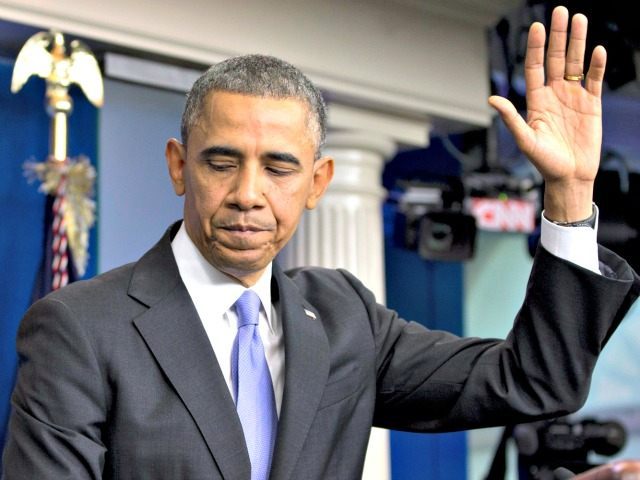Republican senators put in motion the repeal of President Barack Obama’s landmark healthcare reform, Obamacare, Wednesday — successfully voting to open debate on the budget resolution, 51-to-48, with only Sen. Rand Paul (R.-Ky.) breaking ranks.
“The Senate this week is focused on true legislative relief from this law that Americans have long demanded, while ensuring a stable transition in which those with insurance will not lose access to health care coverage,” said Sen. Michael B. Enzi (R.-Wyo.), the chairman of the Senate Budget Committee.
“Unwinding this tangle of partisan gridlock to make meaningful changes will not be easy,” the senator said. “Our goal is to create a healthcare system where Washington makes fewer healthcare decisions, and families are empowered to control their own healthcare with more choices and lower costs.”
Enzi filed his resolution Tuesday under the rules for budget reconciliation, which make the bill a privileged motion, exempt from Senate rules that required a 60-vote threshold to end debate and bring a bill up for a floor vote. Typically, the 60-vote threshold allows the minority party to block or delay legislation by extending debate, a tactic known as the filibuster.
Under these rules, once debate begins, the clock starts on a 50-hour debate limit with an added two hours for each amendment to the bill and an added one hour to amendments to amendments.
Republicans hold 52 seats in the Senate and the Democrats hold 46 plus two Independents, who caucus with the Democrats. The GOP picks up one more vote Jan. 20, when Michael R. Pence is sworn in as vice-president and able to break a tie.
The 54-page budget resolution comes after much internal debate among House and Senate Republicans. Going through the reconciliation process means that only fiscal matters can be addressed in the bill, and other rules and regulations have to be dealt with separately. For this reason, Republicans must beat back Democratic amendments designed to change the bill’s focus and make it ineligible for its privileged status.
The other main drawback is that bills passed through reconciliation sunset in 10 years–which is why President George W. Bush’s tax cuts were up for debate with President Barack Obama.
Paul’s defection from the GOP ranks reflects his disagreement over tactics, rather than the eye surgeon’s support of Obamacare.
Many Republicans, like Paul, want a complete repeal, not the partial repeal available through reconciliation.
The senator made this point in a Tuesday op-ed posted at Rare.us:
If Congress fails to vote on a replacement at the same time as repeal, the repealers risk assuming the blame for the continued unraveling of Obamacare. For mark my words, Obamacare will continue to unravel and wreak havoc for years to come.
The stick of Obamacare was forcing people to buy insurance or pay a penalty. The carrot of Obamacare was allowing people with pre-existing conditions to buy insurance after they were diagnosed. Even with the mandate, many healthy young people refused to buy insurance and the pools of insured Americans under Obamacare are overly burdened by sick individuals and insurance companies are suffering losses.
Final passage of the Senate bill is expected before Jan. 20.

COMMENTS
Please let us know if you're having issues with commenting.